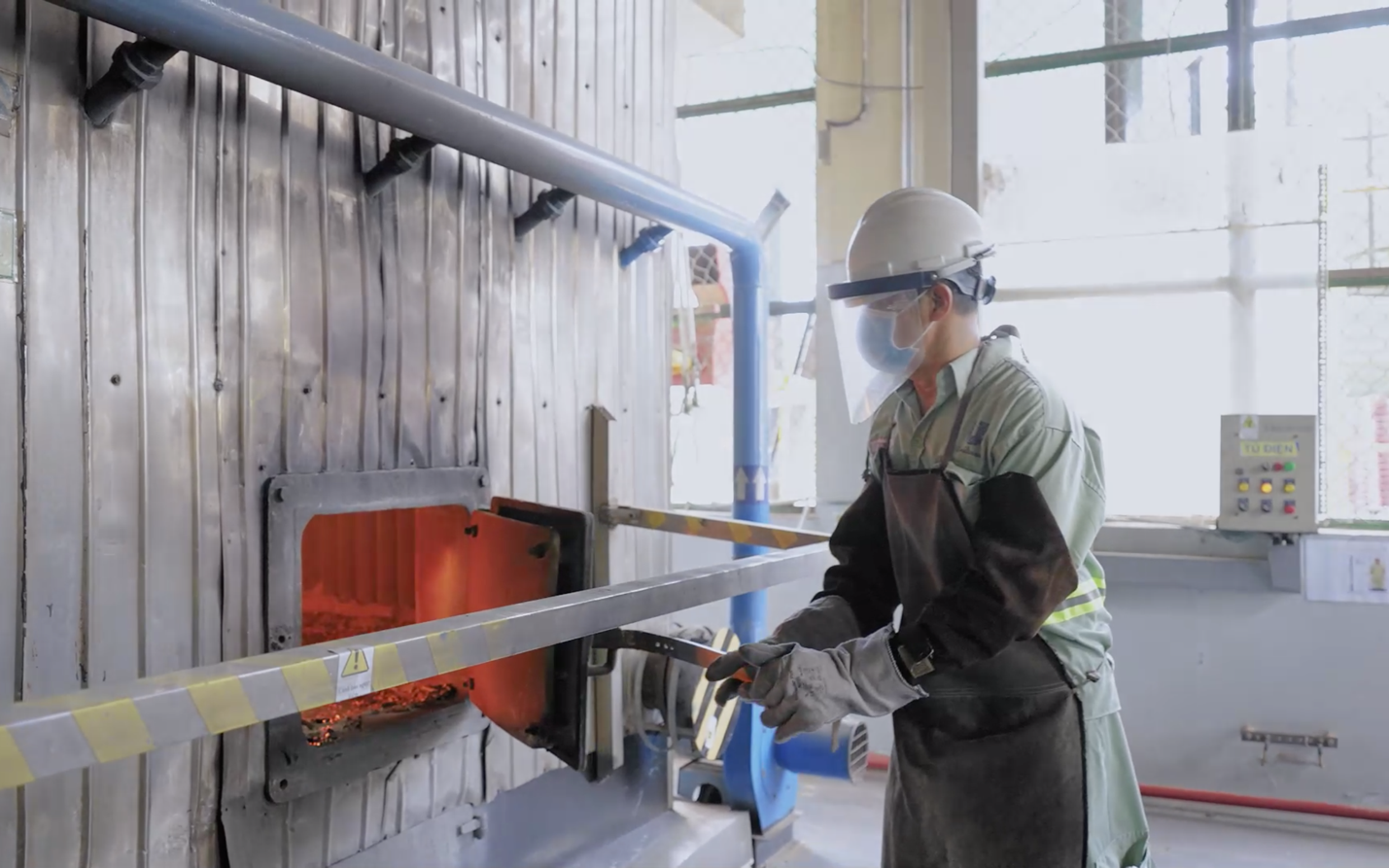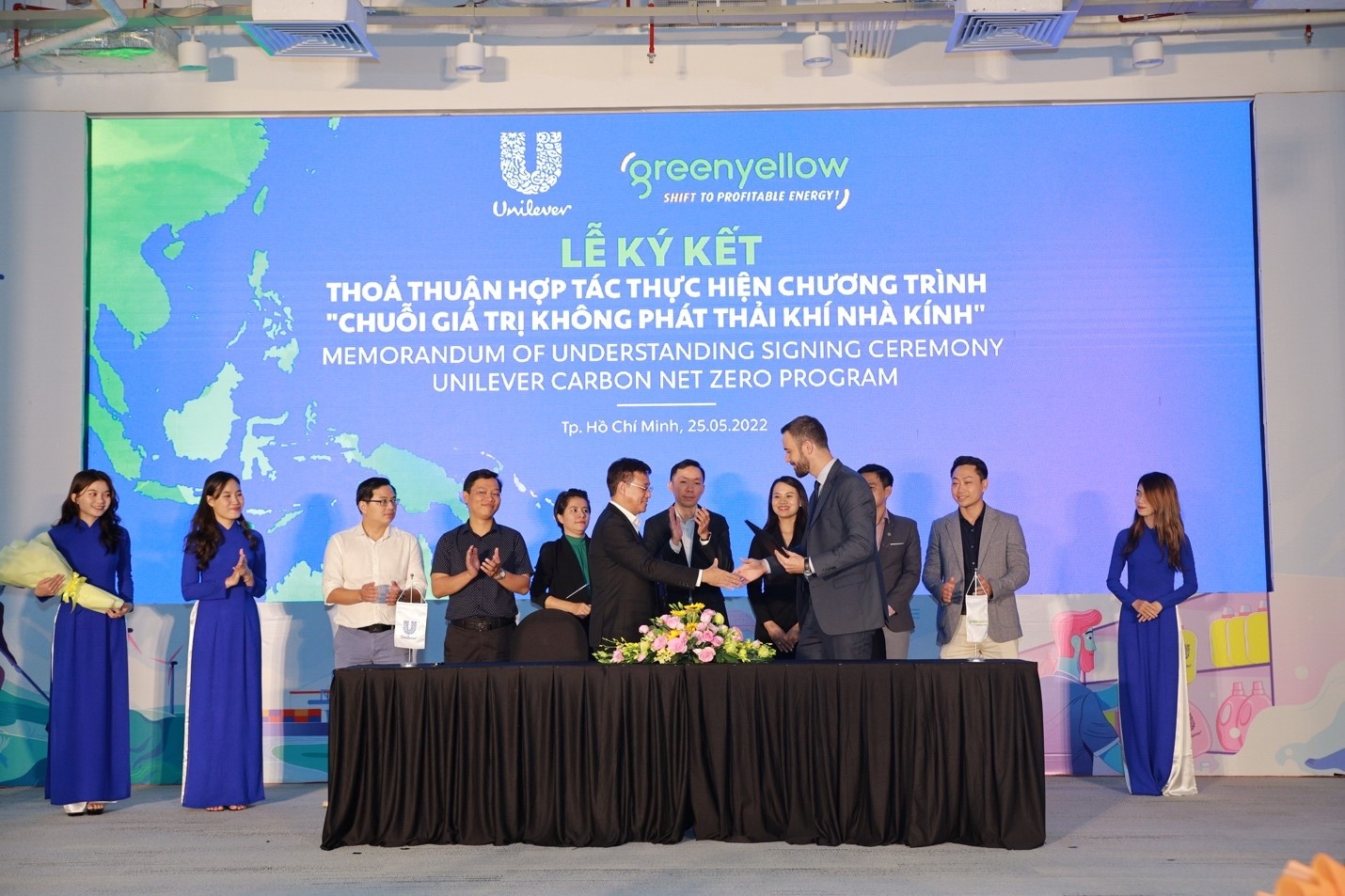Unilever Vietnam achieves net zero emissions nine years earlier than planned
To reduce Unilever's operational emissions in Vietnam, the business strived to leverage innovation and technology at factories to switch from fossil energy to renewable and clean alternatives such as biomass fuel and solar power.
Thanks to this, the company has already reduced a significant amount of greenhouse gas emissions released to the environment. Waste products, such as damaged pallets, shredded paper, and rice husks are recycled into clean biomass wood pellets for the boiler, helping to replace diesel fuel.
 |
| Specialised boilers use biomass pellets, replacing fossil fuel and diesel oil |
In addition, for the purpose of reducing indirect emissions from electricity consumption, Unilever Vietnam has added the I-REC certificate for all power sources at its factories and offices, which means that all carbon emissions through electricity consumption are considered positive carbon.
Besides this, Unilever Vietnam’s factories also replaced all cooling equipment with alternatives using solvents with no impacts on the ozone layer.
Maintaining great efforts and determination, by 2021, Unilever Vietnam had completed the goal of net zero carbon emissions within its operations nine years earlier than the committed deadline with significant milestones.
Accordingly, since 2009, the company has been using solar energy for water boiling for manufacturing and daily activities.
In 2010, it engaged in studying the use of wood pellets to replace diesel in boiler operation. During 2011-2012, it succeeded in completely replacing diesel oil with biomass wood pellets.
In 2016, the company achieved its net zero carbon emissions target at the Cu Chi factory. In 2019, the company switched to green electricity through the I-REC certification.
Last April, the company reached its net zero carbon emissions target at its Bac Ninh factory by launching the biomass-powered boilers and achieving the LEED green building certificate for Unilever Vietnam’s headquarters, distribution centres, and the Bac Ninh factory.
 |
| Green space at Unilever's factory |
Unilever Vietnam has currently reduced 9,684 tonnes of CO2 per year. The initiative to replace diesel oil with clean biomass has made Unilever Vietnam the pioneer in transitioning to renewable energy.
Heading towards net zero carbon emissions across the value chain
Pham Manh Tri, vice president of Supply Chain at Unilever Vietnam said at the Net Zero Carbon Value Chain conference on May 25 in Ho Chi Minh City, “More than 75 per cent of the carbon footprint in Unilever Vietnam's supply chain derives from input materials and outsourced activities. Therefore, achieving the net zero carbon emissions target requires working together.”
Tri added, “There are solutions that cannot be implemented by one business or organisation alone, but cooperation can. This is also the message that we want to convey to our partners and solution providers and call for your participation.”
The conference by Unilever Vietnam witnessed the signing of MoU with diverse partners, including Crown, Dynaplast, Green Yellow, Linfox, Lix, and VinFast, aiming to join hands in developing and deploying solutions for technology-based greenhouse gas emissions reduction.
 |
| Unilever and partners sign the MoU at the conference |
The more than 100 partners of Unilever Vietnam also expressed their wish to join hands with Unilever. This greatly motivates the company to achieve its net zero target within the whole value chain by 2039.
What the stars mean:
★ Poor ★ ★ Promising ★★★ Good ★★★★ Very good ★★★★★ Exceptional
 Tag:
Tag:
Related Contents
Latest News
More News
- Masan Consumer names new deputy CEO to drive foods and beverages growth (February 23, 2026 | 20:52)
- Myriad risks ahead, but ones Vietnam can confront (February 20, 2026 | 15:02)
- Vietnam making the leap into AI and semiconductors (February 20, 2026 | 09:37)
- Funding must be activated for semiconductor success (February 20, 2026 | 09:20)
- Resilience as new benchmark for smarter infrastructure (February 19, 2026 | 20:35)
- A golden time to shine within ASEAN (February 19, 2026 | 20:22)
- Vietnam’s pivotal year for advancing sustainability (February 19, 2026 | 08:44)
- Strengthening the core role of industry and trade (February 19, 2026 | 08:35)
- Future orientations for healthcare improvements (February 19, 2026 | 08:29)
- Infrastructure orientations suitable for a new chapter (February 19, 2026 | 08:15)



























 Mobile Version
Mobile Version